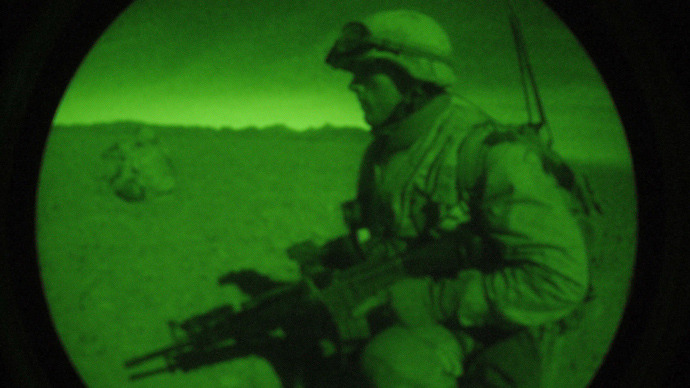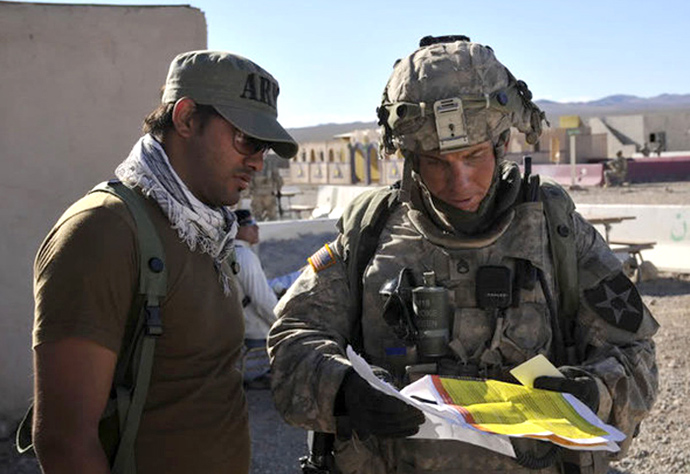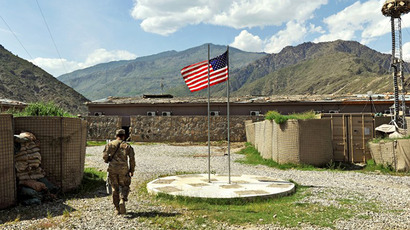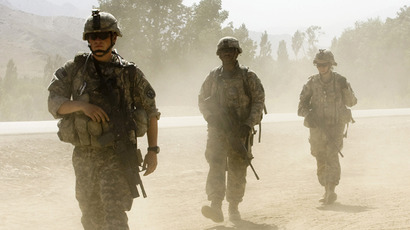US Army sergeant behind Afghanistan atrocity makes bid to avoid execution

The American soldier behind one of the worst atrocities during the war in Afghanistan, which resulted in the deaths of 16 villagers during a nighttime rampage, has agreed to plead guilty in a deal designed to avoid the death penalty.
Staff Sgt. Robert Bales was charged with 16 counts of premeditated murder and six counts of attempted murder for an attack on two villages in Kandahar Province in March of 2012. Among the victims were nine children.
John Henry Browne, an attorney representing Bales, announced on Wednesday that his client had agreed to plead guilty in order to avoid a death sentence. According to the AP, the sentencing phase of the trail is currently set for September, and assuming that the judge overseeing the trial as well as the commanding general of the base where he is being held approve the plea deal, Bales would then face life in prison.
“The judge will be asking questions of Sgt. Bales about what he did, what he remembers and his state of mind," Browne said.
"The deal that has been worked out ... is they take the death penalty off the table, and he pleads as charged, pretty much," he added.
The March 2012 incident, during which Bales slipped away from his southern Afghanistan posting at Camp Belambay armed with an M-4 rifle outfitted with a grenade launcher, incited angry protests so serious that the US temporarily halted combat operations.

Bales was serving in his fourth combat zone, and although he had allegedly been drinking, snorting Valium and taking steroids just before the attack his defense team determined that he would not be able to plead insanity following a psychiatric evaluation.
Though Army prosecutors initially sought the death penalty against Bales, the ongoing controversy over the toll that back-to-back deployments was taking on army personnel was thought to make that outcome unlikely. As the AP also reports, the American military justice system has not executed anyone since 1961.
Relatives of the massacre victims interviewed in April were incensed at the notion that Bales might avoid a death sentence.
"For this one thing, we would kill 100 American soldiers," said Mohammed Wazir to the AP, who had 11 family members killed in the raid, including his mother and 2-year-old daughter.
"A prison sentence doesn't mean anything," said Said Jan, whose wife and three other relatives were murdered.
"I know we have no power now. But I will become stronger, and if he does not hang, I will have my revenge," he told the AP.
An Army spokeswoman at Joint Base Lewis-McChord, where Bales is currently being held, did not return a call seeking comment Wednesday following news of the potential plea deal.
One of Bale’s lawyers, Emma Scanlan, said via email that he would plead guilty to premeditated murder charges, and will then stand before a military jury to determine whether his life term in prison might include the possibility of parole, assuming the deal is approved.
Browne, who previously indicated Bales remembered little from the night of the massacre, has indicated that his client is prepared to provide a full account of the incident before the judge determines whether to accept the new plea deal.














